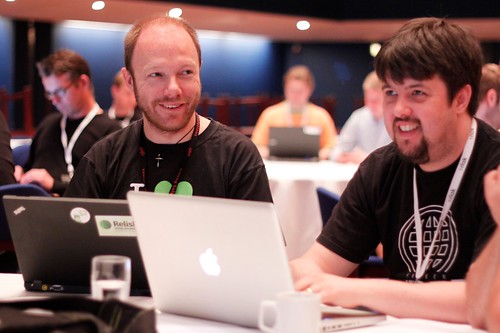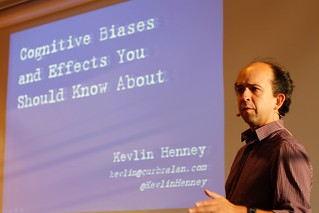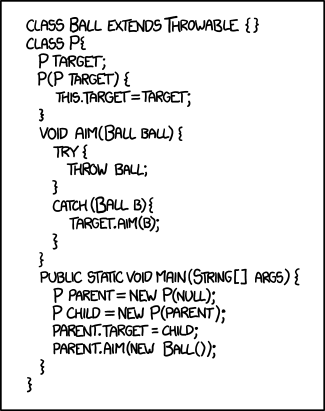Jeg skal til konference i næste uge og jeg glæder mig: 3 dage med de ypperste i min branche. Jeg er endda blevet inviteret, så jeg har VIP-billet med det, som ville svare til backstace-adgang. Det er jeg selvfølgelig ekstra glad for, men det er nu ikke den primære årsag.
De fleste forstår intuitivt, at for at holde sig i form, skal man træne regelmæssigt. Sidder man stille og inaktiv, forfalder kroppen, for den spilder ikke energi på at vedligeholde noget som ikke bliver brugt. Snart bliver hverdagens største udfordring også det maximale man kan præstere.
Sådan er det også med hjernen…
Hvis ikke man træner sin hjerne, giver den nogle udfordringer ud over det sædvanlige, forfalder evnen til at overskue komplekse problemstillinger. Hvis man ikke tager på konferencer eller efteruddanner sig, sidder man reelt og bliver dummere.
Ses vi på GOTO?

 I have heard him speak on other occasions and I really enjoy listening to his talks. I find them inspirering and I always take something new home with me. Last time it was a Rubriks Cube and a ball pen – you know what I mean.
I have heard him speak on other occasions and I really enjoy listening to his talks. I find them inspirering and I always take something new home with me. Last time it was a Rubriks Cube and a ball pen – you know what I mean.

